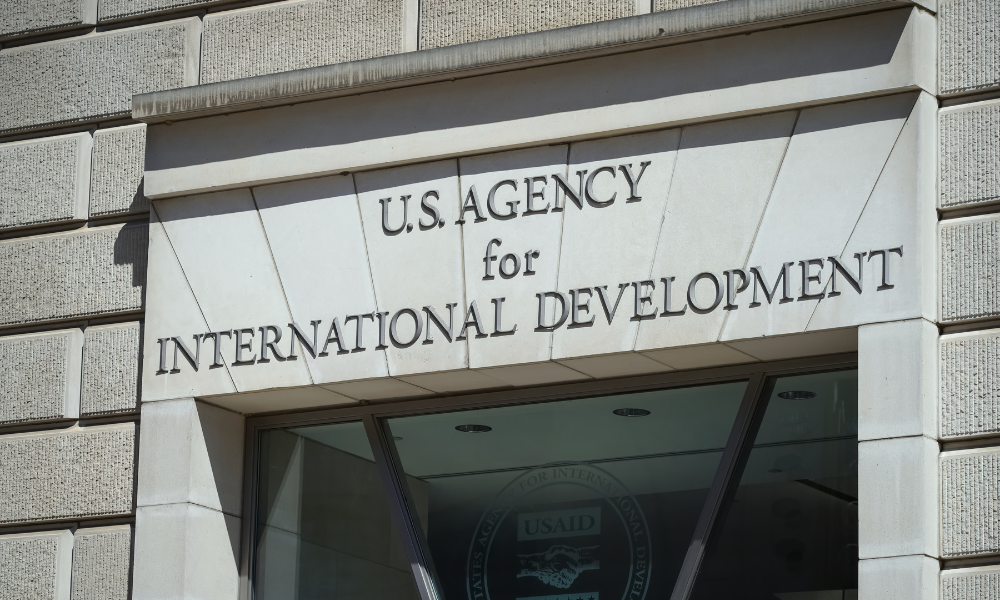
'All USAID employees currently on administrative leave shall be reinstated' until Feb. 14, court rules

A federal court in Washington, D.C., has temporarily blocked the Trump administration's decision to place USAID employees on administrative leave, siding with unions that argue the move would cause irreparable harm to workers.
The decision came in response to a motion filed by the American Foreign Service Association (AFSA) and another union representing USAID staff, which claimed that the administrative leave plan would severely disrupt the safety and well-being of employees stationed overseas.
On February 7, Judge Carl Nichols of the U.S. District Court for the District of Columbia granted a Temporary Restraining Order (TRO), halting the government's efforts to place as many as 2,700 USAID employees, including those in high-risk regions, on leave.
The plaintiffs argued that these actions, part of a broader effort to restructure USAID, would leave employees vulnerable to security threats without access to essential government resources.
"Plaintiffs have adequately demonstrated that their members are facing irreparable injury from their placement on administrative leave," Nichols wrote in his decision. "No future lawsuit could undo the physical harm that might result if USAID employees are not informed of imminent security threats occurring in the countries to which they have relocated."
At the heart of the plaintiffs' argument was the risk to employees working in "high-risk environments" who would be cut off from vital security systems.
USAID employees stationed abroad, the plaintiffs said, would be left in an "informational vacuum" without access to the agency's email, payment systems, or internal security alerts.
The court found that these concerns were significant, especially for workers in volatile regions such as Syria, where threats to personal safety are a constant risk.
"Simply being paid cannot change that fact," the court observed, highlighting the unique dangers faced by USAID employees abroad.
The government, in defending its actions, argued that placing employees on administrative leave was a routine personnel decision, but the court disagreed.
"Administrative leave in Syria is not the same as administrative leave in Bethesda," Nichols wrote, referring to the stark contrast between the risks faced by employees in conflict zones and those based domestically.
The decision has significant implications for the Trump administration's ongoing efforts to scale back the U.S. foreign aid apparatus.
In its request for the TRO, the unions framed the actions as part of a broader "illegal and unconstitutional dismantling of USAID."
They also pointed to a provision in the Further Consolidated Appropriations Act of 2024, which mandates consultation with Congress before the U.S. State Department or USAID can make substantial changes to the agency, including reducing its workforce or reorganising its operations.
The court found that the plaintiffs' case raised a "colourable argument" that the administrative leave actions violated this law, further strengthening the case for a TRO.
While the court did not make a final ruling on the merits of the claims, it found the plaintiffs had met the requirements for an emergency order, particularly considering the harm that could befall employees if the actions were allowed to proceed.
The TRO applies until February 14, at which point a hearing will be held to determine whether the order should be extended or modified.
"All USAID employees currently on administrative leave shall be reinstated until that date, and shall be given complete access to email, payment, and security notification systems until that date, and no additional employees shall be placed on administrative leave before that date," the court's ruling stated.
The decision puts a dent on the Trump administration's plan on freezing foreign aid, which significantly impacts the USAID. It was previously reported by Reuters that the admin only intended to keep 611 USAID essential staff out of the agency's worldwide workforce of more than 10,000.
On Friday, the USAID said on its website that all direct hire personnel will be placed on administrative leave globally, except for designated personnel responsible for mission-critical functions, core leadership, and specially designated programmes, CNN reported.
AFSA previously slammed this decision as "reckless" in a statement.
"These non-partisan men and women have dedicated their careers to advancing America’s interests abroad, only to have their futures suddenly placed in jeopardy," AFSA president Tom Yazdgerdi said.
Yazdgerdi stressed that USAID Foreign Service officers are "non-partisan patriots who serve under every president."
"AFSA is committed to using every tool at our disposal to protect these professionals, safeguard their careers, and ensure that USAID retains the expertise necessary to fulfil its mission."
Trump's freeze on foreign aid could impact a wide range of programmes across the world, including anti-malaria spraying campaigns in Africa as well as initiatives to combat HIV in Haiti, Reuters reported.
The USAID isn't the only agency facing layoffs ever since Trump stepped into power.
The US president also recently issued an executive order that put on leave all employees working on diversity, equity, and inclusion programmes as part of his opposition against such initiatives.
It also introduced a deferred resignation programme, which was reportedly accepted by 20,000 to 40,000 federal workers.